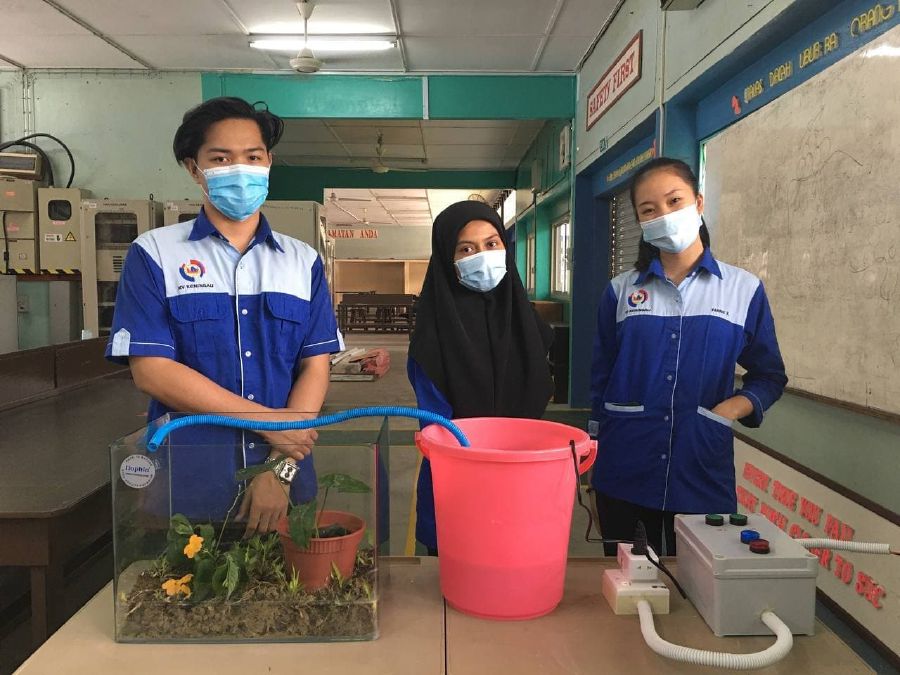KOTA KINABALU: Three Sabah vocational students are gearing up to win a USD2,000 (RM8,200) grant in Haquathon 2.0 which is to be used to find solutions to tackle coastal and marine sustainability related issues.
The trio are Warren Junior Patin, Andi Fazirah Usman, and Vannie Verus. They are 20-year-olds from Keningau Vocational College.
They are the only Malaysian team that has secured a spot to compete at the online hackathon organised by Save Philippine Sea, American Spaces Philippines, and the U.S. Embassy in the Philippines.
Warren, who is the team leader, said they would be pitching their project entitled "Mechanical Water Veins" - a device that can provide water directly to the soil surrounding the roots of plants in the most optimal manner on a pre-set schedule.
"It's a crop watering device that is mainly operated through PLC (programmable logic controller) system.
"This project can help people who live in urban areas and are busy with work most of the time by keeping their house plant watered on a schedule basis," he said.
The device reduces water waste as it controls the amount of water that flows through its tubes.
It also reuses wastewater runoff from sinks, showers, bathtubs, toilets, washing machines and dishwashers.
Meanwhile, Keningau Vocational College director Johari @ Jaibet Sabin lauded the students' effort in putting their skills into practice by developing a practical project that can help tackle some environmental issues.
"The technique used in their project can be replicated and scaled up so the concept can be widely applied in a large garden or farmland.
"The main purpose is to conserve the usage of water especially in urbanised areas which is consistent with the concept of innovation known as e-STEM (environmental STEM)," he said on the efforts.
Johari added he hoped more students would explore real-world problems and design solutions to address these problems.
The team is currently attending virtual training programme that started on April 24.
They would be competing with 12 other teams from the Philippines, Indonesia and Vietnam, for the USD2,000 grant.






